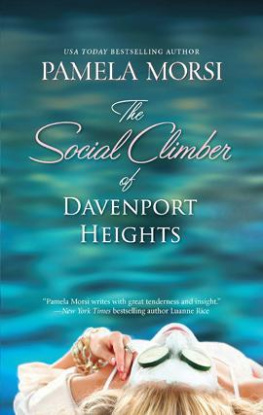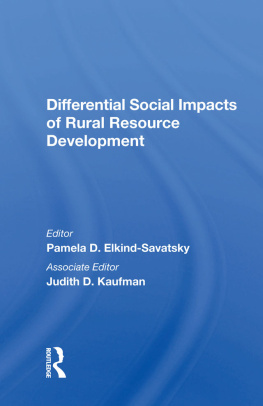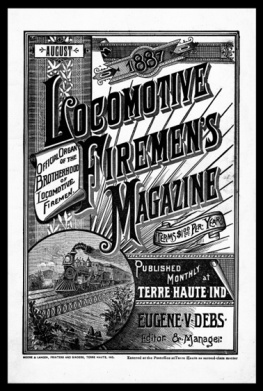Pamela Morsi - The Social Climber of Davenport Heights
Here you can read online Pamela Morsi - The Social Climber of Davenport Heights full text of the book (entire story) in english for free. Download pdf and epub, get meaning, cover and reviews about this ebook. year: 2010, publisher: Mira, genre: Detective and thriller. Description of the work, (preface) as well as reviews are available. Best literature library LitArk.com created for fans of good reading and offers a wide selection of genres:
Romance novel
Science fiction
Adventure
Detective
Science
History
Home and family
Prose
Art
Politics
Computer
Non-fiction
Religion
Business
Children
Humor
Choose a favorite category and find really read worthwhile books. Enjoy immersion in the world of imagination, feel the emotions of the characters or learn something new for yourself, make an fascinating discovery.
- Book:The Social Climber of Davenport Heights
- Author:
- Publisher:Mira
- Genre:
- Year:2010
- Rating:4 / 5
- Favourites:Add to favourites
- Your mark:
- 80
- 1
- 2
- 3
- 4
- 5
The Social Climber of Davenport Heights: summary, description and annotation
We offer to read an annotation, description, summary or preface (depends on what the author of the book "The Social Climber of Davenport Heights" wrote himself). If you haven't found the necessary information about the book — write in the comments, we will try to find it.
The Social Climber of Davenport Heights — read online for free the complete book (whole text) full work
Below is the text of the book, divided by pages. System saving the place of the last page read, allows you to conveniently read the book "The Social Climber of Davenport Heights" online for free, without having to search again every time where you left off. Put a bookmark, and you can go to the page where you finished reading at any time.
Font size:
Interval:
Bookmark:
I F ANYONE HAD asked me that fall morning back in 2000 how my life was going, I would have told them that I was doing good. I'd had a five-million-dollar year in real estate sales, much to the chagrin of some of my less ambitious colleagues. I'd just finished remodeling our impressive five-bedroom Italianate in the exclusive Davenport Heights neighborhood. I chaired the Corporate Development Committee for the Junior League. And my bright and beautiful daughter, Brynn, was in her second year at college back East.
Of course, things were not perfect.
David, my husband, was having his little "affair" with that tacky, blond, twentysomething hairstylist. It was so typical and such a cliche.
I, though still dealing with that dead-skin feeling from my recent tuck and lift, was trying to schedule some free time to get my thighs sucked. Plastic surgery is like painting the baseboards. It makes you notice how bad the walls look.
Brynn was seeing a highly reputable and expensive therapist twice a week. He felt that it would be counterproductive for her to take time away from school and her sessions with him to visit her parents. I missed her.
So it wasn't as if I was living in a fairy tale, but I thought that I was doing good.
That same afternoon I took a couple with midlevel salaries and a Ford Expedition to look at a renovated ranch house in Stoney Hills. It was pretty lackluster, but the neighborhood was prime.
"It's a big house for just two people," the husband pointed out. His wife raised her head immediately. Whether they had opted for a childless marriage or it had been a medical issue, she was obviously defensive about it. I was on her side.
"The size of a house shouldn't be determined solely by the number of people who are going to live there," I told him. "A pair of successful, goal-focused individuals certainly deserve as roomy and as comfortable a living space as some Brady Bunch horde."
The description of the latter was voiced with deliberate disdain.
"A fine home," I continued, "like a luxurious car, is a reflection of the owner's personal worth and value in the community. I don't think that can ever be too large."
They offered a full-price contract on the house.
To celebrate this coup, I dropped by the Yesteryear Emporium on Broadway at San Jose near the edge of downtown. It was a dark, cavernous building that had housed a big department store that had gone bankrupt in the thirties. It was my favorite antique store in the city, and I had been to all of them. It wasn't just that they had some nice things from time to time, which they certainly did, but it was crammed full of every imaginable glass or chair or unimaginable farm implement. Three floors and a back lot to the alley--open for wandering among the superfluous and the sublime. Only the mezzanine level, where the owner lived, was off-limits. Although for all that fellow noticed, I probably could have rifled though his apartment and bought his own door lock, and he would have neither known what it was nor recognized its value.
He was a big, burly, good-looking guy who didn't know squat about antiques. No matter how unreasonably low the price might be on a treasured item, I could always intimidate him into letting me have it for less.
He rarely ventured from beyond the counter. Partly because he had a pronounced limp that frequently required the use of a cane. But more often, I think, because he was busily typing on a greasy old Underwood. I assumed he was either writing pornographic novels or editing an outlaw-biker magazine. Whatever his preoccupation, it was my pleasure to talk him out of his best inventory at a tenth of its value. I didn't feel bad about it. If the guy doesn't know what his merchandise is worth, he deserves to have it stolen.
That particular day I got away with a star-cut crystal jardiniere for forty-five dollars. I was smiling all the way home.
I fixed a light dinner. David's eighteen holes ran long, and he came straight from the shower to the table dressed in Dockers and a polo shirt.
"You should have seen me on the seventh green," he said. "I was perfectly aligned. If I hadn't seen it myself, I would have thought I'd put the ball down by hand. Dolph bogied and I cleaned it up. I tell you, when that happens I just feel like I can do anything."
I do not play golf. I never have. I never will. None of that mattered to David, of course. It was beyond his imagining that anyone might not be interested in a shot-by-shot replay of his game.
I didn't bother to interrupt him. I tuned out what he was saying and waited, rather patiently, I thought, for him to finish. Eventually, he did.
"You remember that we have that party at the club tonight," I said.
Clearly he didn't remember, but he nodded as if he did.
"You'll have to make my apologies," he said. "I can't make it tonight, I'm due back at the office."
David's work as a partner in the law practice started by his grandfather barely required a thirty-hour workweek. Anything more than that would have conflicted drastically with his golfing schedule. The phrase due back at the office was David's private unspoken euphemism for his having made plans with Mikki, the aforementioned blond, twentysomething hairstylist.
I was furious, not because he was going to be with her, but because he was not going to be with me. I didn't really care where, or with whom, he slept, but when facing the lions of country club society it was always easier to go at it as a team, with someone beside you to watch your back.
"This is the most important get-together of the season," I pointed out. "Next year's membership applications are all in. There'll be plenty of discussion about who is to fill the vacancies."
The country club was as exclusive an old guard as can be imagined. It dated back to 1914, and most of the original family names were still on the roster. The annual fees were exorbitant--sufficient deterrent to keep out the vast majority of the populace. But there were plenty of other restrictions. Only a current member in good standing could put a name up for consideration. And new people were added reluctantly. Neither money nor politics nor social position could ensure acceptance. Inclusion was entirely at the whim of those already ensconced. The voting was done at the Christmas party, by secret ballot. And it had to be unanimous. Private pettiness was disguised as conservative concern. In the twenty years that I'd been a part of it, fewer than a dozen new families had been accepted for invitation. The only long-term way to sell exclusivity was to not sell too much of it.
"You just go without me and tell me later what I need to know," David said. "I always vote the way you want anyway."
That was certainly true. David could not have cared less about the club or the politics swirling within it--even though it had figured prominently in his childhood as the site of every birthday party, Easter-egg hunt and Fourth of July fireworks display. It was where he'd first learned to dance, where we'd had our wedding reception, where he'd introduced Brynn at her debutante ball. Close association with the club had made David less in awe of it. For him, it was just another golf course. And not even one of his favorites.
For me, who would have never been allowed through those gates without him, the club was the symbol of all I had attained in my life. I'd grown up as a west-side nobody. Now I was Someone , with a capital S , in the city. I was not likely to take that for granted.
"I talked to Brynn today," David said, deftly changing the subject.
I stopped in midbite and held myself completely still for an instant.
"She called you?"
It was not like her to disturb Daddy at work. Me, of course, she would call up on my mobile at anytime of the day or night.
Font size:
Interval:
Bookmark:
Similar books «The Social Climber of Davenport Heights»
Look at similar books to The Social Climber of Davenport Heights. We have selected literature similar in name and meaning in the hope of providing readers with more options to find new, interesting, not yet read works.
Discussion, reviews of the book The Social Climber of Davenport Heights and just readers' own opinions. Leave your comments, write what you think about the work, its meaning or the main characters. Specify what exactly you liked and what you didn't like, and why you think so.












